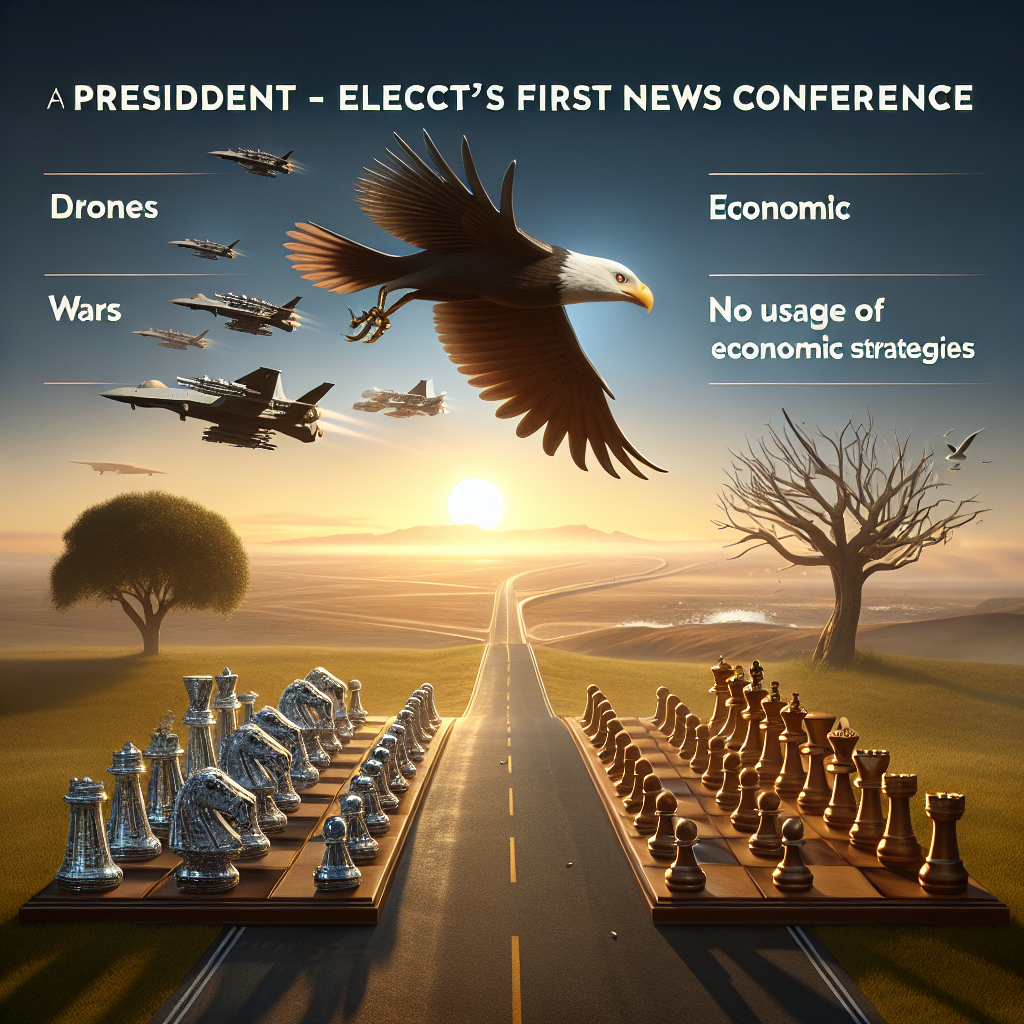Trump’s First News Conference as President-Elect: Drones, Wars, and TikTok
Introduction
In an engaging return to the forefront of American politics, President-elect Donald Trump hosted his first news conference since winning the election more than six weeks ago. This much-anticipated event unfolded at the luxurious Mar-a-Lago resort in Florida and covered a broad scope of topics ranging from international conflicts to technology regulations, all while revealing Trump’s adaptation to his evolving political landscape.
A Shift in Tone and Approach
Unlike his often combative presence during the campaign trail, Trump embraced a more relaxed and humorous demeanor during the news conference. He displayed confidence as he interacted with reporters, showcasing a contrast to the darker and angrier rhetoric that characterized much of his campaign. The newly elected leader, noticeably struck by the interest of foreign leaders and corporate executives, shared an amusing commentary on his transformed persona, quipping, “In this term, everybody wants to be my friend. I don’t know — my personality changed or something.”
Economic Announcements
The news conference kicked off with promising economic news: Trump announced a substantial investment in the U.S. by Japanese technology giant SoftBank. CEO Masayoshi Son was present as Trump declared that SoftBank would invest $100 billion in the American economy over the next four years. This announcement set the stage for Trump to elaborate on his economic priorities and aspirations for his second term in office.
Cabinet Considerations and Policy Priorities
Trump utilized the event to outline several key appointments, expressing his belief that Robert F. Kennedy Jr., his pick for Health and Human Services secretary, would be less radical than public perception suggests. He voiced concerns about the confirmation of Pete Hegseth as defense secretary, relating to allegations of misconduct and asserting that it would be a “tragedy” if Hegseth did not make it through the Senate’s verification process.
In his wide-ranging discussion, Trump hinted at potential government reforms, claiming that an Elon Musk-led efficiency project could eliminate up to $2 trillion in government spending. Furthermore, he mentioned that his administration would examine whether to implement a ban on TikTok, the China-owned social media platform, amidst growing privacy and national security concerns.
International Affairs and Heavy Topics
On the global stage, Trump addressed pressing international issues, particularly focusing on the ongoing conflicts in Gaza and Ukraine. He urged Hamas to finalize a deal with Israel for the release of hostages, implying the repercussions of inaction could be severe, stating, “it’s not going to be pleasant.” Trump also conveyed his belief that Ukrainian President Volodymyr Zelenskiy should seek a resolution with Russian President Vladimir Putin to end the ongoing Ukraine war, underscoring his mantra on the necessity of making deals, asserting, “Gotta make a deal.”
Personal Grievances and Media Criticism
The president-elect’s grievances with the media were not left unaddressed, as he pledged to pursue legal actions against multiple news organizations he believes have wronged him. He lamented the current state of journalism, declaring, “Our press is very corrupt. Almost as corrupt as our elections,” illustrating his long-standing contention with media representation.
Conclusion
As Donald Trump prepares to take office again on January 20, he does so amid significant polarization in the United States. His news conference presents a glimpse into his approach to foreign and domestic policies while suggesting that his second term will be a notable departure from the tumult and controversy of his first. In a time characterized by deep divisions, Trump’s ability to navigate the complexities of both the political landscape and the economy will undoubtedly put his leadership qualities to the test as he embarks on his next chapter in the White House.
This news conference sets the tone for what is anticipated to be both a transformative and challenging administration, emphasizing the importance of engagement, dialogue, and strategic deal-making in addressing the multifaceted issues facing the nation and the world.

